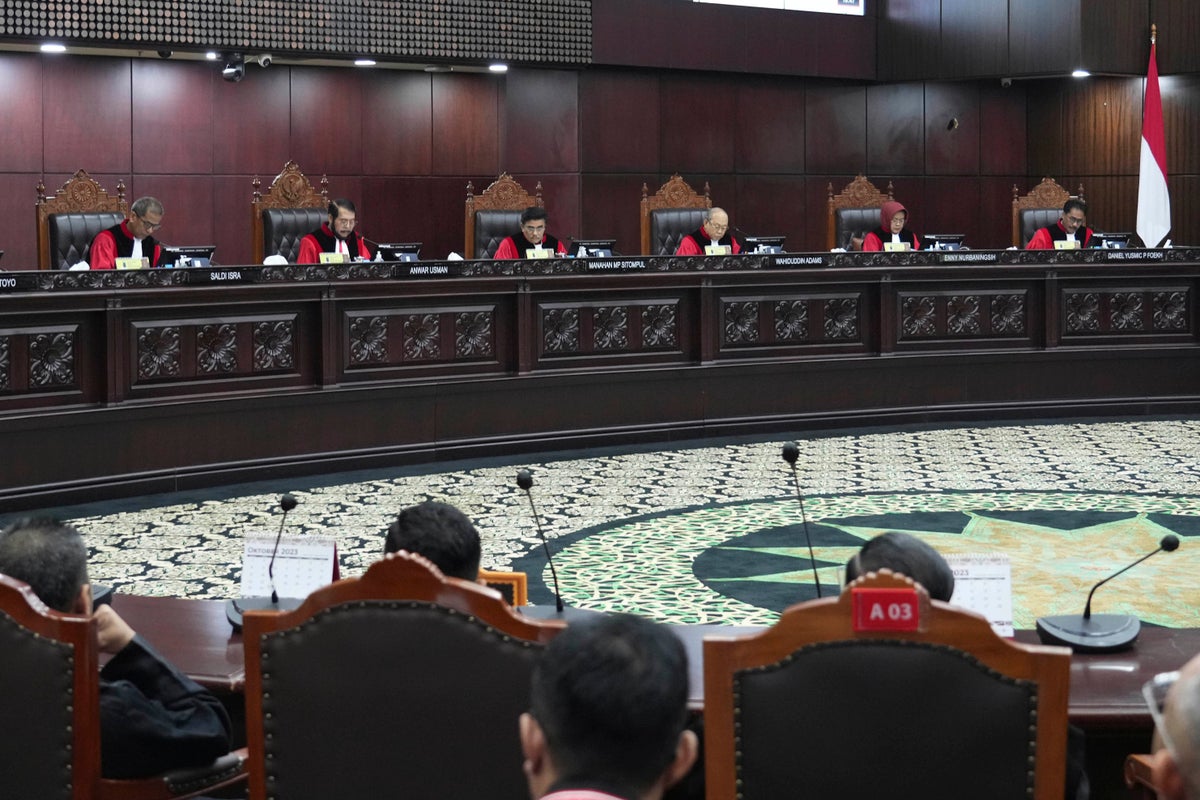
Indonesia’s top court rejected an effort to block presidential candidates who are over 70 or implicated in human rights abuses, clearing the legal path for a septuagenarian former general's ultra-nationalist campaign.
Lawyers belonging to a human rights advocacy group and other petitioners argued that the constitution required stricter limits than those written in the country's 2017 General Election Law, which sets no maximum age.
If successful, the petition would have blocked frontrunner Prabowo Subianto, 72, a former special forces general and current defense minister, from competing in the election scheduled for next February.
While the petitioners said they were not targeting a particular candidate, Subianto's candidacy is widely feared by human rights activists, who associate him with torture and disappearances during the final years of the Suharto dictatorship.
The petitioners asked the court to rule that the candidates cannot be older than 70 years old, citing the constitution's requirement that candidates be "mentally and physically capable” for the office.
The 8-to-1 decision by the nine-judge panel of the Constitutional Court rejected the arguments, saying it was up to parliament to set limits on the presidency.
“We deeply regret this decision,” said petitioner Anang Suindro, the coordinator of Alliance 1998 Lawyers for Democracy and Human Rights, “We considered that today the Constitutional Court has failed to protect and fight for human rights in Indonesia’s election process.”
The ruling came one week after the Constitutional Court carved out an exception to the law’s minimum age, allowing Subianto to choose his preferred vice presidential candidate.
Some of the petitioners also proposed rules barring candidates connected to genocide, forced disappearances and other human rights abuses.
Constitutional Court Judge Daniel Yusmic Foekh said that granting the petition “could weaken the existing legal certainty."
The Constitutional Court’s decision is final.
A longtime commander in Indonesia’s Kopassus special forces, Subianto was discharged from the military in 1998 after Kopassus soldiers kidnapped and tortured activists political opponents of Suharto, his then father-in-law. Of 22 activists kidnapped that year, 13 remain missing. Subianto never faced trial, although several of his men were tried and convicted.
Subianto went into self-imposed exile in Jordan for several years, later returning to Indonesia and founding a political party. He ran for the presidency twice, losing to current president Joko Widodo both times, before accepting a position in Widodo's cabinet.
Now, Subianto is running as Widodo's successor, naming the president's eldest son as vice-presidential candidate. Gibran Rakabuming Raka, the 36-year-old mayor of Surakarta, is below the statutory minimum age of 40, but will be allowed to run under an exception created by the top court last week that allows current and former regional governors to run at 35.
Subianto's campaign has focused on Indonesia’s global stature, which he says does not match its size and population.
Recent opinion surveys show Subianto maintaining a large lead over the rival camps. Four nationwide surveys conducted last month showed Subianto between 11 and 20 percentage points ahead of his two rivals, though over 20% of voters said they were undecided.
____
Associated Press writer Edna Tarigan in Jakarta, Indonesia, contributed to this report.







